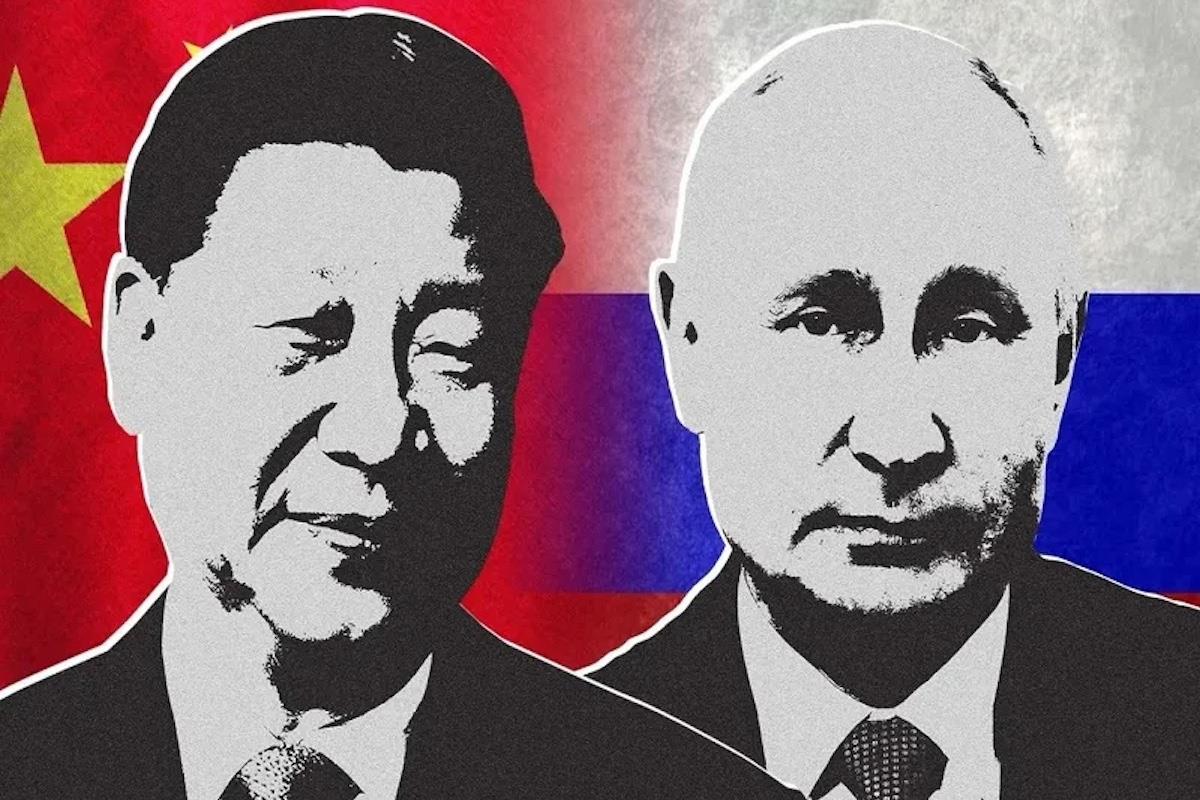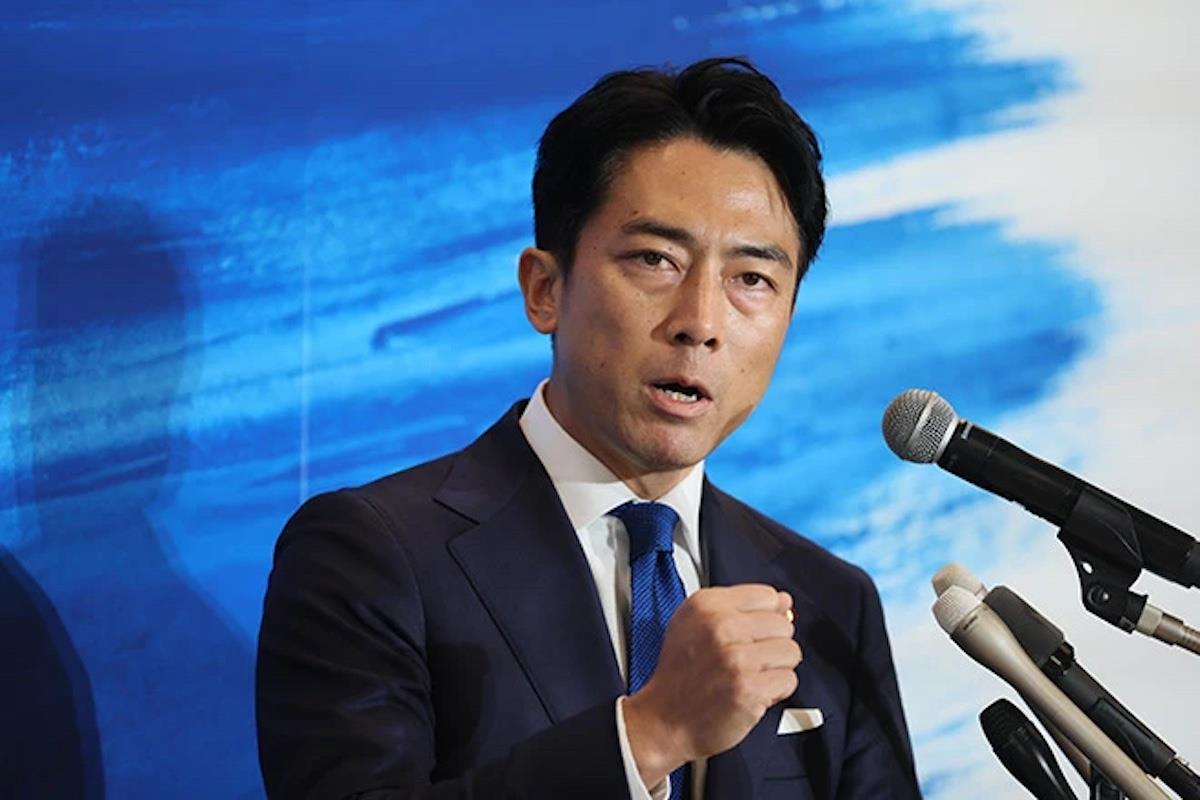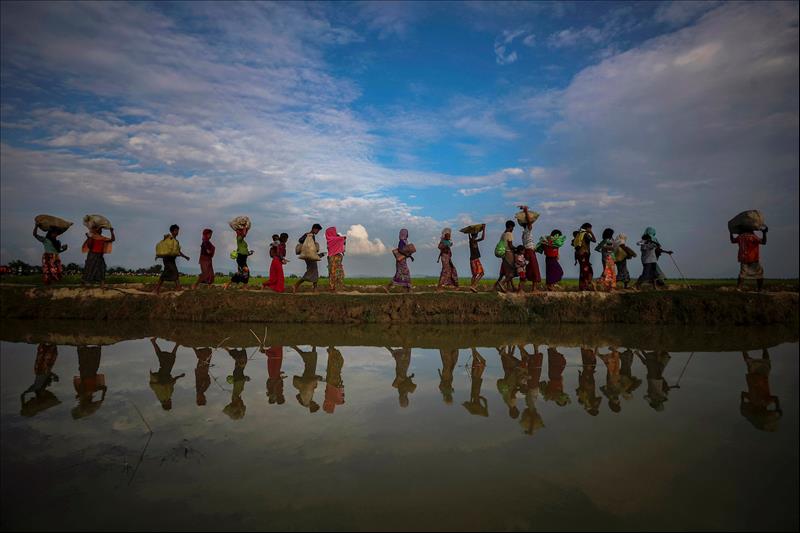Trump Provides New Fuel For Myanmar's Rohingya Genocide
For Myanmar, which has long pursued a strategy of rendering the Rohingya stateless and unwanted , the speech was more than rhetorical-it was legitimizing.
Trump urged nations to close borders, expel foreigners and guard against migrants“you've never seen before, that you have nothing in common with.” He painted migration as an existential threat , warning of countries being“ruined” or“destroyed” by outsiders.
Such framing, delivered from the podium of the United Nations, cannot be dismissed as mere political theater. It carries symbolic weight, suggesting that great powers will not only tolerate but may tacitly endorse such exclusionary measures.
For Myanmar's military generals, who for decades have denied the Rohingya citizenship and rights, Trump's language is validation. The Rohingya's marginalization is deeply rooted.
Since the 1982 Citizenship Law , they have been stripped of recognition as one of Myanmar's“national races,” rendering them stateless in their own homeland. Successive governments have labeled them“Bengali” interlopers from Bangladesh, despite the group's presence in Myanmar's western Rakhine state for centuries.
Over time, legal exclusion escalated into systemic violence. On August 25, 2017 , Myanmar's military launched a brutal“clearing” campaign in Rakhine, marked by mass killings, widespread sexual violence and the burning of villages.
Latest stories
China-Russia partnership is less than meets the eye

Japan's leadership race pitting moderates vs hard right

US plotting a military comeback at Philippines' Subic Bay
Within weeks, over 700,000 Rohingya fled to neighboring Bangladesh, joining hundreds of thousands already displaced in previous waves of persecution.
Human Rights Watch has since documented how, eight years on, the Rohingya remain trapped between refugee camps in Bangladesh and apartheid-like conditions in Myanmar, with no justice, no freedom and no path to citizenship. Several credible organizations, not least the US government itself, have branded the persecution a“genocide.”
By rebranding chauvinistic expulsion as national self-preservation, Myanmar's military rulers now find a powerful international voice of support in Trump. When the leader of the world's most powerful nation normalizes the idea of expelling foreigners, authoritarian regimes everywhere will hear permission.
They will calculate that international norms have shifted , that condemnation of expulsion may be muted and that human rights obligations are now optional, not mandatory. For persecuted minorities like the Rohingya, the implications of Trump's speech are chilling if not fatal.
The UN, established to uphold human dignity , risks being repurposed into a stage for justifying its erosion. International law rests not only on treaties and institutions but also on the power of precedent and example.
If the norm of protecting minorities is abandoned at the rhetorical level, it erodes the will to act at the policy level. Trump's speech, therefore, is not just a domestic political message; it is a global signal that undermines decades of fragile progress on human rights.
Myanmar's generals, of course, do not require external encouragement to repress the Rohingya. Its policies of forced displacement, denial of citizenship and violent crackdowns predate Trump's return to the presidency.
Yet external affirmation matters. It will necessarily embolden the generals, reduce their fear of isolation and complicate the efforts of ASEAN, the UN and humanitarian actors to hold Myanmar accountable. In geopolitics, perception shapes behavior as much as capability.
The broader danger is that Trump's speech contributes to a global climate where scapegoating the vulnerable becomes politically defensible. Across regions, governments facing economic crises or security dilemmas may find it easier to blame migrants or minorities. The Rohingya's plight then becomes part of a wider trend-the normalization of expulsion as statecraft.
This is precisely why rhetoric at the UN matters. Words from its podium are not just fleeting soundbites; they are signals that shape norms. In the 20th century, leaders used the General Assembly to rally against apartheid , to denounce colonialism and to call for global solidarity . Today, the same stage risks being used to justify exclusion and persecution.
ASEAN, in particular, cannot afford to be silent. Myanmar is part of the regional community, and its treatment of the Rohingya undermines ASEAN's credibility as a body committed to peace and stability.

Sign up for one of our free newsletters
-
The Daily Report
Start your day right with Asia Times' top stories
AT Weekly Report
A weekly roundup of Asia Times' most-read stories
When the language of a major power seems to embolden policies of expulsion, ASEAN must reaffirm its own principles of inclusivity and human dignity . Otherwise, the region risks complicity by silence.
Trump's UN speech may have been aimed at shoring up his domestic political base, but its international consequences will likely be far-reaching. For Myanmar, it sounded like a green light. For the Rohingya, it deepened the shadows of uncertainty.
For the international community, it was a reminder that words can empower either protection or persecution. Governments and multilateral organizations everywhere have a choice: to allow the normalization of expulsion or to defend the universality of rights.
In this sense, Trump's address was not just another fiery speech. It was a moment that will embolden those who see minorities as targets. Myanmar is already acting on this logic. The world must decide whether to challenge it-or to allow Trump's regrettable rhetoric to imperil the world's most vulnerable.
By Phar Kim Beng (PhD) is professor of ASEAN studies, International Islamic University of Malaysia, and director, Institute of International and ASEAN Studies (IINTAS). Luthfy Hamzah is research fellow, Institute of International and ASEAN Studies (IINTAS).
Sign up here to comment on Asia Times stories Or Sign in to an existing accoun
Thank you for registering!
An account was already registered with this email. Please check your inbox for an authentication link.
-
Click to share on X (Opens in new window)
X
Click to share on LinkedIn (Opens in new window)
LinkedIn
Click to share on Facebook (Opens in new window)
Facebook
Click to share on WhatsApp (Opens in new window)
WhatsApp
Click to share on Reddit (Opens in new window)
Reddit
Click to email a link to a friend (Opens in new window)
Email
Click to print (Opens in new window)
Print

Legal Disclaimer:
MENAFN provides the
information “as is” without warranty of any kind. We do not accept
any responsibility or liability for the accuracy, content, images,
videos, licenses, completeness, legality, or reliability of the information
contained in this article. If you have any complaints or copyright
issues related to this article, kindly contact the provider above.
Most popular stories
Market Research

- Zebu Live 2025 Welcomes Coinbase, Solana, And Other Leaders Together For UK's Biggest Web3 Summit
- Yield Basis Nears Mainnet Launch As Curve DAO Votes On Crvusd Proposal
- Blueberry Launches A Bold New Brand Platform
- Stonehaven Circle Marks 13Th Anniversary With Hadrian Colwyn Leading Calvio Ailegacyx Innovation
- R0AR Launches Buyback Vault: Bringing 1R0R To R0AR Chain Unlocks New Incentives
- Moonbirds And Azuki IP Coming To Verse8 As AI-Native Game Platform Integrates With Story





















Comments
No comment